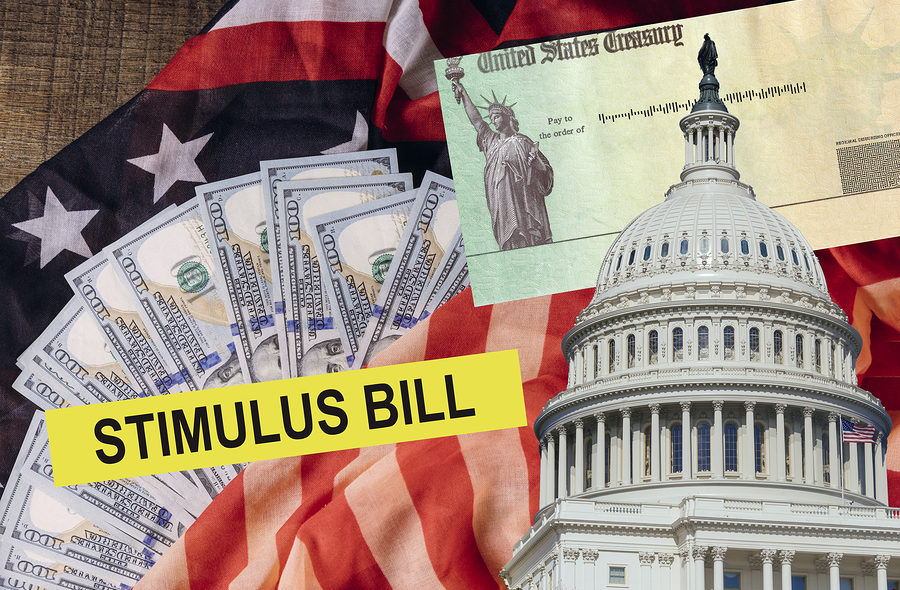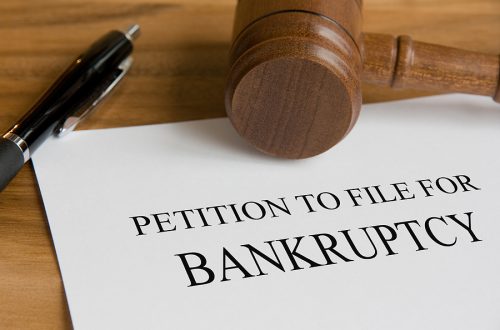The coronavirus (COVID-19) has hit our nation’s economy hard, with many Americans finding themselves suddenly out of work. Countless small businesses have had to close their doors due to the spread of the coronavirus. Financial assistance is available during the COVID-19 crisis.
A record number of American workers filed for unemployment last week, which totaled 3.28 million people. The biggest form of financial help comes in the form of a recent $2.2 trillion stimulus package passed by Congress just last week. President Trump signed the stimulus bill into law on March 27, 2020.
Stimulus checks
One of the most popular provisions within this bill involves checks that will be sent to most American workers. People should expect $1,200 checks to individuals earning $75,000 or less with a decreasing scale for individuals making between $75,000 and $99,000 annually. Married couples who earn less than $150,000 and file their taxes jointly will receive a total of $2,400. Married couples will also receive an additional $500 per child.
These checks will be based off 2019 tax returns, if they have been filed, or 2018 if the person has not filed their 2019 taxes yet. Checks will be arriving in April either in the form of direct deposit or physical check. Lawmakers have discussed the possibility of a second check in the summer depending on how long the crisis lasts.
Unemployment Benefits
Unemployment benefits were also a part of the stimulus package. Currently, the average unemployment benefits payout is $300 per week, lasting for 26 weeks. The stimulus bill extends this time to 39 weeks, and now workers who are employed as freelancers can apply for unemployment. If an individual is not able to work due to being sick, quarantined or needs to stay home and care for his or her children due to COVID-19, that person will receive an additional $600 per week lasting for four months.
Small Business Assistance
Many banks and credit card companies are offering their customers debt-relief assistance, but the stimulus package also offers some assistance for struggling small businesses through the form of grants or loans. Businesses that employ less than 500 employees will be eligible to receive help from over $400 billion in zero-percent interest loans. If the company follows guidelines outlined in the bill, such as not firing workers and using the money to cover employee salaries, pay health insurance premiums, and other costs, these small business loans may be forgiven. The maximum amount that can be taken is $10 million.
Businesses can also find relief through the Small Business Administration (SBA) in the form of loans. The SBA is offering small businesses low-interest working capital loans for up to $2 million to keep these businesses and nonprofits affected by COVID-19 running. Small businesses will pay an interest rate of 3.75 percent on loans while nonprofits will pay 2.75 percent interest for terms up to 30 years.
Tax Deadline Extended
Consumers and businesses have been given a three-month extension to July 15, 2020 for submission of federal taxes. Similarly, Florida state taxes have also been given this same extension of time in the hopes that this will give people and businesses more time to focus on the immediate fallout from this crisis and to prepare their returns. However, if someone is expecting a refund, he or she can file at any time.
Suspension of Student Loan Interest
For workers who are finding themselves suddenly out of a job and not able to pay their bills, relief has been given when it comes to student loan interest. On March 21, 2020 President Trump announced that student loan borrowers could be given the option to suspend their student loan payments for at least two months with no penalty. A week before that, the Department of Education had also stated that interest would be suspended on student loans indefinitely. For borrowers interested in suspending their payments, they are instructed to contact their service providers to enroll in a forbearance program.
For more information click here.
If you have questions on this topic or are in financial crisis and considering filing for bankruptcy, contact an experienced Miami bankruptcy attorney who can advise you of all of your options. As an experienced CPA as well as a proven bankruptcy lawyer, Timothy Kingcade knows how to help clients take full advantage of the bankruptcy laws to protect their assets and get successful results. Since 1996 Kingcade Garcia McMaken has been helping people from all walks of life build a better tomorrow. Our attorneys’ help thousands of people every year take advantage of their rights under bankruptcy protection to restart, rebuild and recover. The day you hire our firm, we will contact your creditors to stop the harassment. You can also find useful consumer information on the Kingcade Garcia McMaken website at www.miamibankruptcy.com.


